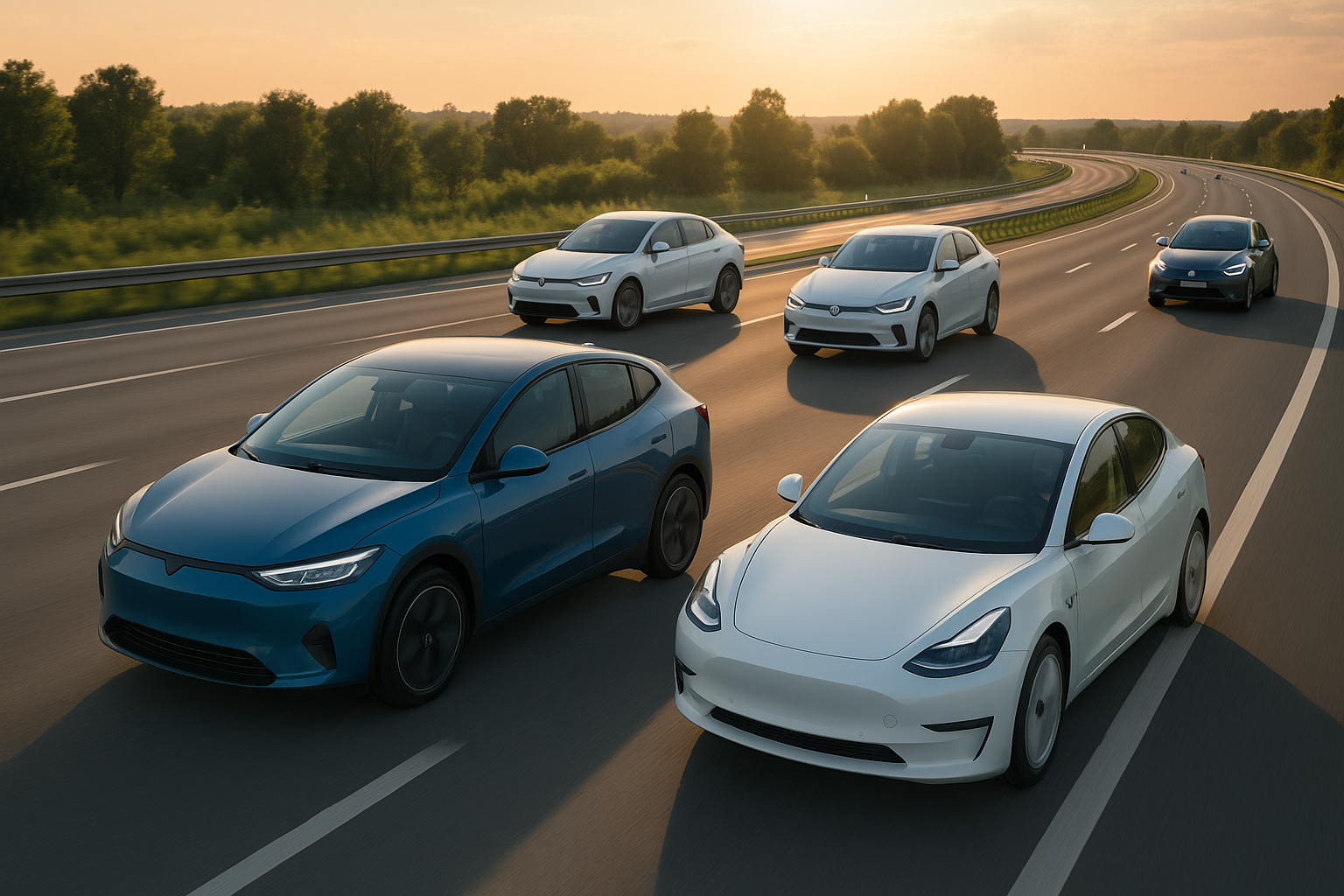Key States and Their EV Battery Policies

As more states implement their own electric vehicle (EV) battery durability and warranty regulations, a complex patchwork of policies is emerging across the United States. While a federal standard requires an 8-year or 100,000-mile warranty, states are building on this baseline with more specific mandates, particularly concerning a battery's State of Health (SOH). This evolving landscape is directly impacting manufacturers, dealers, and consumers, influencing everything from vehicle production to the used EV market.
California: The Benchmark
California's Advanced Clean Cars II (ACCII) regulation sets the gold standard for EV battery health.
- For model years 2026-2030, EV and plug-in hybrid electric vehicle (PHEV) batteries must be warranted to maintain a minimum of 70% SOH for eight years or 100,000 miles.
- Beginning with model year 2031, this standard increases to 75% SOH for the same period.
- California's Lemon Law provides additional consumer protections if a battery repeatedly fails within the warranty period.
- Evolving Standards: This standard increases for subsequent models; for the 2031 model year and beyond, the required minimum SOH rises to 75% for the same eight-year/100,000-mile period.
- Onboard Monitoring and Labeling: The regulations also require that post-2026 EVs include a "state of health" monitor on the dashboard to track battery deterioration. Furthermore, a permanent label on the battery must include a digital identifier, like a QR code, that links to a public website containing information on the battery's rated capacity and other critical data.
States Adopting California's Approach
Several states have formally adopted California's ACCII rules, aligning their markets with these strict durability standards.
- Oregon: Adopted the ACCII rule in 2022, signaling a commitment to the same durability and warranty provisions as California.
- New Mexico: Also adopted ACCII in 2022. It has an additional consumer-facing policy: to qualify for a used EV tax credit, the vehicle must have a one-year dealer-provided warranty against defects.
- New York: Adopted the ACCII rule, requiring manufacturers to warranty batteries to maintain 70-80% of their original range over the vehicle's lifespan.
- Rhode Island: Its adoption of the ACCII rule includes durability and warranty provisions aimed at maintaining 70-80% SOH for the battery's lifespan.
- New Jersey: Adopted ACCII and also passed a law requiring battery producers to create and fund a management plan for collection and recycling of used batteries.
- Vermont: Adopted the ACCII regulation in late 2022, which aligns the state with California's durability provisions for manufacturers.
- Connecticut: Has adopted California's motor vehicle emissions standards and compliance requirements, which include ZEV production and sales requirements for manufacturers.
- Massachusetts & Maine: Both have adopted California's Low-Emission Vehicle (LEV) regulations, which sets the foundation for similar durability standards.
States with Different Priorities
Some states have focused their regulations on other aspects of the EV lifecycle, such as waste management and recycling, rather than SOH.
- Washington: The focus here is on recycling and safety. The state classifies most batteries as "dangerous waste" and has strict rules for storage, labeling, and disposal. A bill introduced in 2025 aims to establish an Extended Producer Responsibility (EPR) program, requiring manufacturers to fund recycling and disposal efforts.
- Colorado: This state's policies prioritize incentives for EV adoption and a framework for end-of-life battery management. It does not specify SOH or durability standards beyond the general federal requirements.
Summary of State Regulations
| State | Primary Regulatory Focus | Specific SOH/Durability Mandates | Recycling/End-of-Life Policy |
|---|---|---|---|
| California | ZEV Sales & Battery Durability | 70% SOH for 8 yrs/100K miles (MY '26-'30); 75% SOH for same period (MY 31+) | Included in ACCII, with additional Lemon Law protections |
| Oregon | ZEV Sales & Consumer Assurance | Adopts ACCII, implying California’s SOH standards | Focus on a healthy used car market |
| New Mexico | ZEV Sales & Consumer Assurance | Adopts ACCII, implying California’s SOH standards | Tax credit for used EVs requires a 1-yr dealer warranty |
| New York | ZEV Sales & Battery Durability | Adopts ACCII; requires 70-80% range retention | N/A |
| Rhode Island | ZEV Sales & Battery Durability | Adopts ACCII; aims for 70-80% range retention | N/A |
| New Jersey | ZEV Sales & Recycling | Adopts ACCII, including durability standards | Requires producers to fund recycling and management plans |
| Vermont | ZEV Sales & Durability | Adopts ACCII, aligning with California standards | N/A |
| Connecticut | ZEV Sales & Compliance | Adopts California’s standards | N/A |
| Massachusetts | ZEV Sales & Compliance | Adopts California’s LEV regulations | N/A |
| Maine | ZEV Sales & Compliance | Adopts California’s vehicle emissions standards | N/A |
| Washington | Waste Management & Safety | None specified beyond federal | Classifies batteries as "dangerous waste"; strict disposal rules; proposed EPR program |
| Colorado | Incentives & End-of-Life | None specified beyond federal | Framework for end-of-life management |